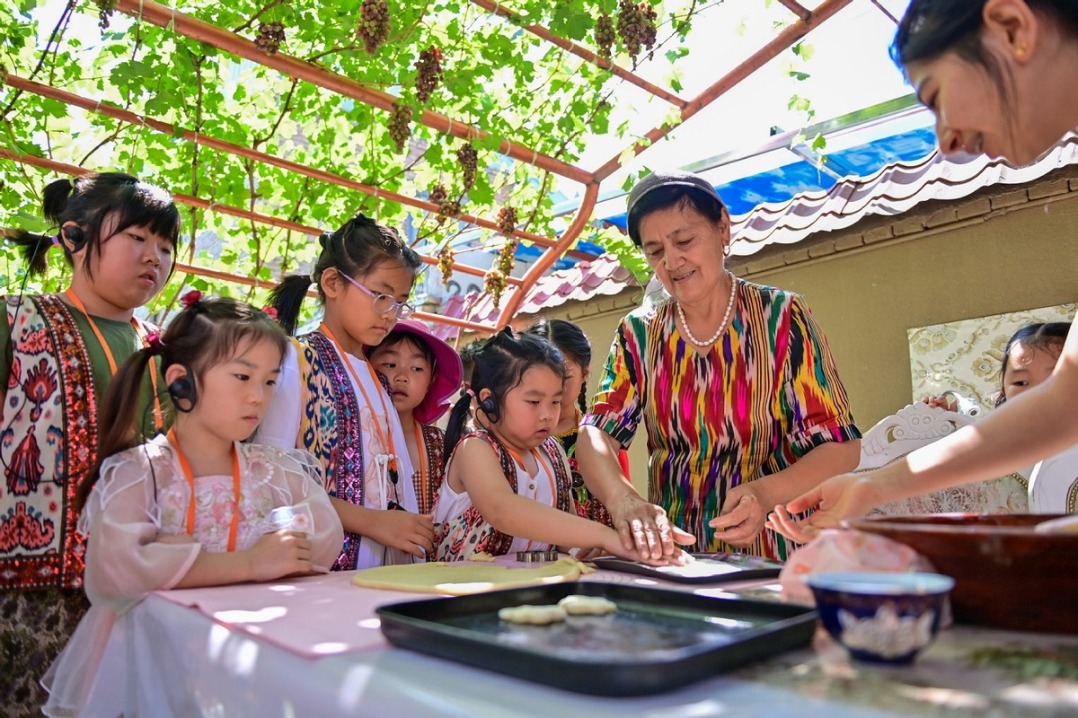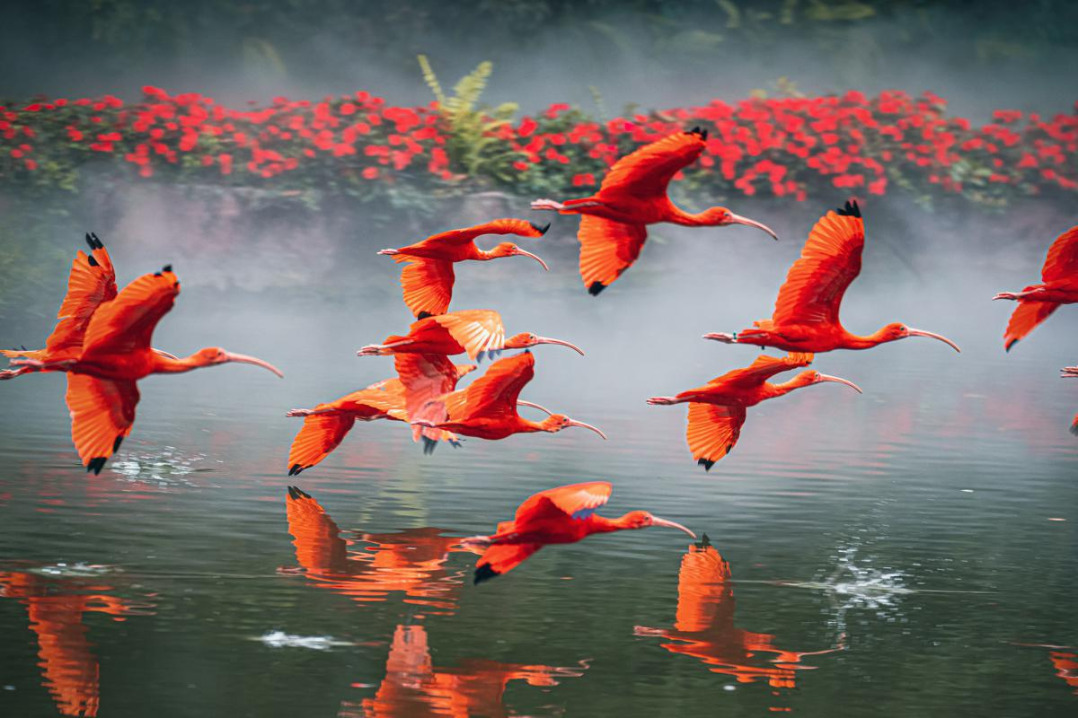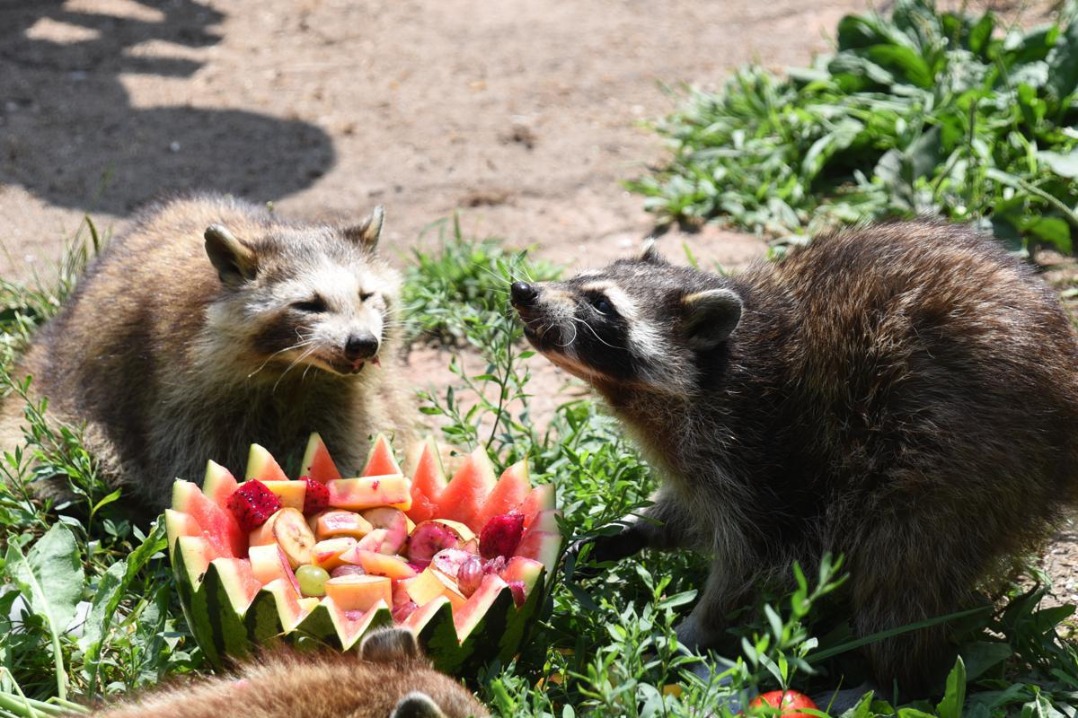Gut microbiota plasticity helps wildlife adapt on Qinghai-Tibet Plateau

XINING -- Chinese researchers have newly revealed that the plasticity of gut microbiota is a key factor assisting ungulates in better adapting to different regions on the Qinghai-Tibet Plateau in western China.
This study has provided insights into understanding how gut microbiota helps hosts adapt to local diets during the adaptation of ungulates to different areas on "the roof of the world," according to the Northwest Institute of Plateau Biology (NWIPB) under the Chinese Academy of Sciences.
Conducted by a research team from the NWIPB, the study also unveiled the host-microbiota synergy mechanism of plateau wildlife, thereby providing a scientific basis for formulating targeted protection strategies. These findings have been published in the journal mSystems.
"Revealing how wildlife adapts to different regions has always been one of the goals of conservation biology, especially given the background of accelerating loss of global biodiversity," said Zhang Tongzuo, leader of the study and a researcher at the NWIPB.
The Qinghai-Tibet Plateau is the world's highest-altitude ecosystem and one of the global hotspots in the field of conservation biology studies. It boasts diverse habitats and a rich variety of wild animals, including blue sheep, which is one of the ungulates with the widest distribution and the largest population in this region.
"Blue sheep are widely distributed in various habitats, such as shrublands, grasslands and deserts -- forming a complex regional dietary differentiation pattern. It provides an ideal model for studying host-microorganism co-adaptation in extreme environments," said Zhang.
The study team used blue sheep as the focus of the study, adopting high-throughput sequencing techniques and liquid chromatography-mass spectrometry to investigate their diets and the composition and functioning of their gut microbiota.
Researchers collected and tested the composition of gut microbial metabolites in three regions of the Qinghai-Tibet Plateau -- namely the Qinghai Lake basin, the Kunlun Mountains and the Sanjiangyuan area, which is known as "China's water tower."
Through multiple technical measures, the team explored their different diets and the composition and functional characteristics of their gut microbiota, as well as differences in their metabolites.
Compared with their peers living in the other two regions, blue sheep in the Qinghai Lake basin possess gut microbiota with a greater capacity to digest seemingly indigestible substances -- thus significantly enhancing their energy conversion efficiency, according to the research findings.
This study for the first time reveals an adaptive strategy for efficient energy acquisition through gut microbial plasticity in plateau blue sheep via a low crude fiber dietary mode, Zhang said.
"It sheds light on how gut microbiota helps hosts adapt to local diets during the adaptation of ungulates to different regions on the Qinghai-Tibet Plateau, thereby sustaining future plateau animal conservation efforts," Zhang said.
- Gut microbiota plasticity helps wildlife adapt on Qinghai-Tibet Plateau
- China's basic old-age insurance covers over 1.07 billion people: report
- Chinese vice-president meets Pakistani army chief
- Medical firm thrives under Hainan's tax incentives
- China's homegrown MA60 civil search and rescue aircraft completes first test flight
- Xi receives credentials of new ambassadors to China




































